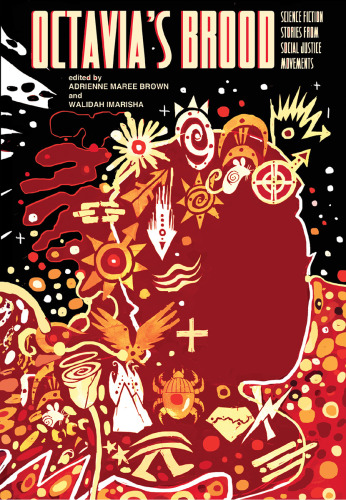Whenever we envision a world without war, without prisons, without capitalism, we are producing speculative fiction. Organizers and activists envision, and try to create, such worlds all the time. Walidah Imarisha and adrienne maree brown have brought twenty of them together in the first anthology of short stories to explore the connections between radical speculative fiction and movements for social change. The visionary tales of Octavia's Brood span genres—sci-fi, fantasy, horror, magical realism—but all are united by an attempt to inject a healthy dose of imagination and innovation into our political practice and to try on new ways of understanding ourselves, the world around us, and all the selves and worlds that could be. The collection is rounded off with essays by Tananarive Due and Mumia Abu-Jamal, and a preface by Sheree Renée Thomas.
PRAISE FOR OCTAVIA'S BROOD:
"Those concerned with justice and liberation must always persuade the mass of people that a better world is possible. Our job begins with speculative fictions that fire society's imagination and its desire for change. In adrienne maree brown and Walidah Imarisha's visionary conception, and by its activist-artists' often stunning acts of creative inception, Octavia's Brood makes for great thinking and damn good reading. The rest will be up to us." —Jeff Chang, author of Who We Be: The Colorization of America
“Conventional exclamatory phrases don't come close to capturing the essence of what we have here in Octavia's Brood. One part sacred text, one part social movement manual, one part diary of our future selves telling us, 'It's going to be okay, keep working, keep loving.' Our radical imaginations are under siege and this text is the rescue mission. It is the new cornerstone of every class I teach on inequality, justice, and social change....This is the text we've been waiting for." —Ruha Benjamin, professor of African American Studies at Princeton University and author of People's Science: Bodies and Rights on the Stem Cell Frontier
"Octavia once told me that two things worried her about the future of humanity: The tendency to think hierarchically, and the tendency to place ourselves higher on the hierarchy than others. I think she would be humbled beyond words that the fine, thoughtful writers in this volume have honored her with their hearts and minds. And that in calling for us to consider that hierarchical structure, they are not walking in her shadow, nor standing on her shoulders, but marching at her side." —Steven Barnes, author of Lion's Blood
“Never has one book so thoroughly realized the dream of its namesake. Octavia's Brood is the progeny of two lovers of Octavia Butler and their belief in her dream that science fiction is for everybody.... Butler could not wish for better evidence of her touch changing our literary and living landscapes. Play with these children, read these works, and find the children in you waiting to take root under the stars!" —Moya Bailey and Ayana Jamieson, Octavia E. Butler Legacy
“Like [Octavia] Butler's fiction, this collection is cartography, a map to freedom." —dream hampton, filmmaker and Visiting Artist at Stanford University's Institute for Diversity in the Arts
Walidah Imarisha is a writer, organizer, educator, and spoken word artist. She is the author of the poetry collectionScars/Stars and facilitates writing workshops at schools, community centers, youth detention facilities, and women's prisons.
adrienne maree brown is a 2013 Kresge Literary Arts Fellow writing...


دیدگاه کاربران